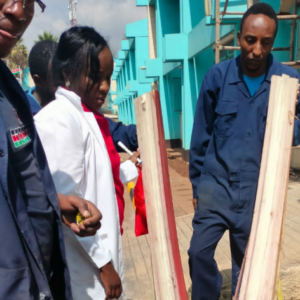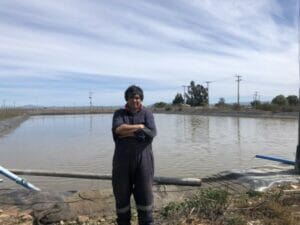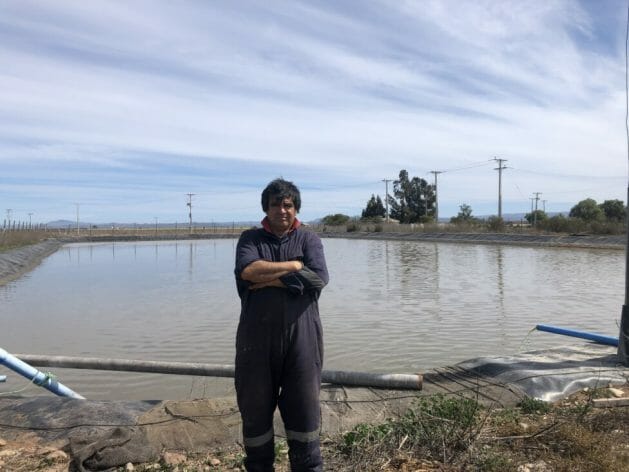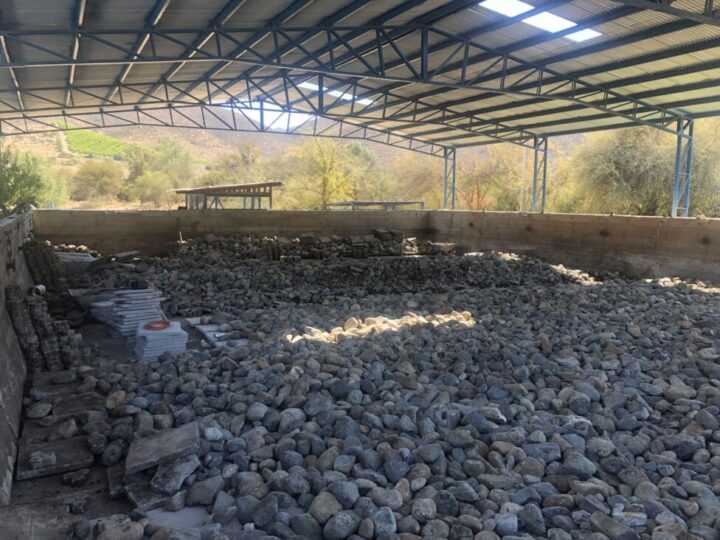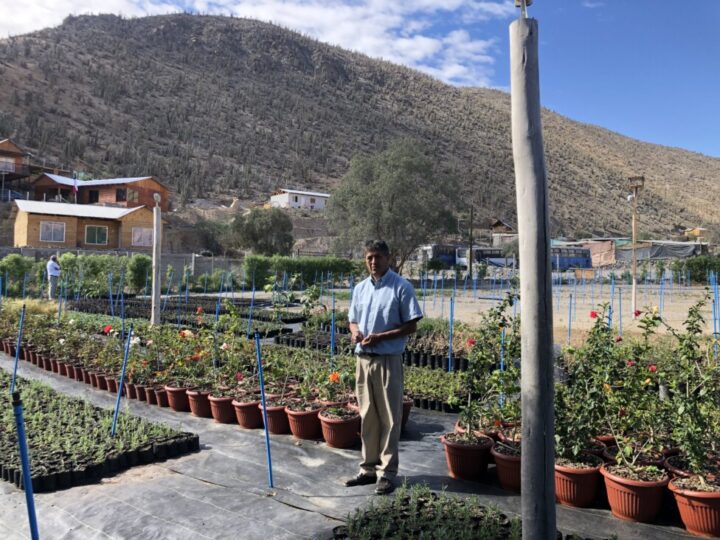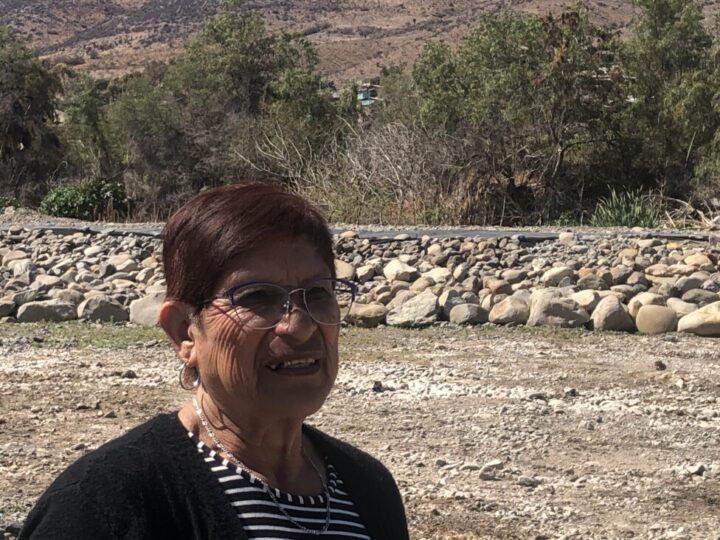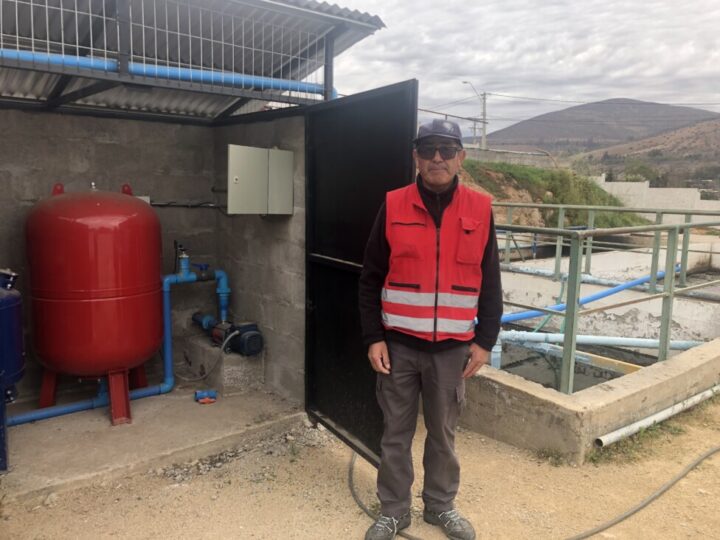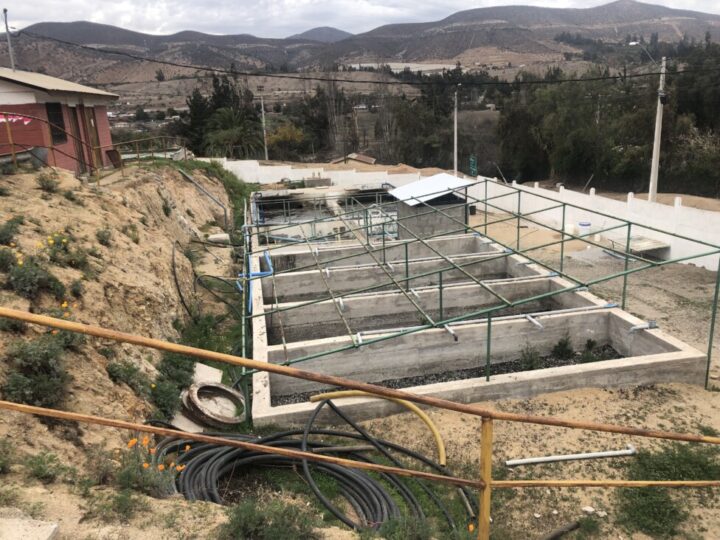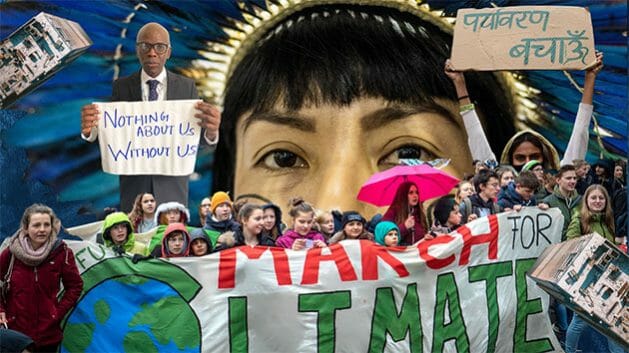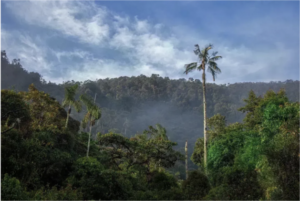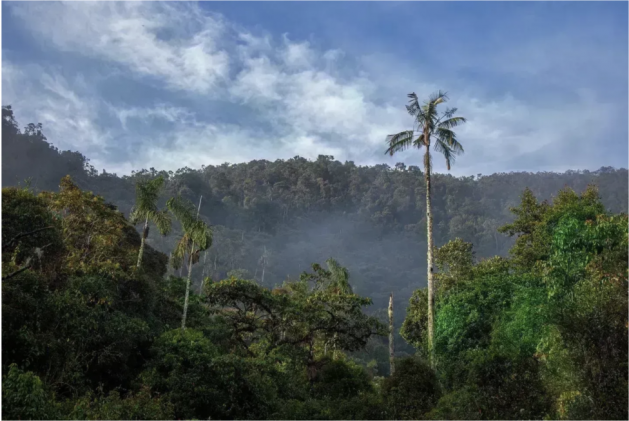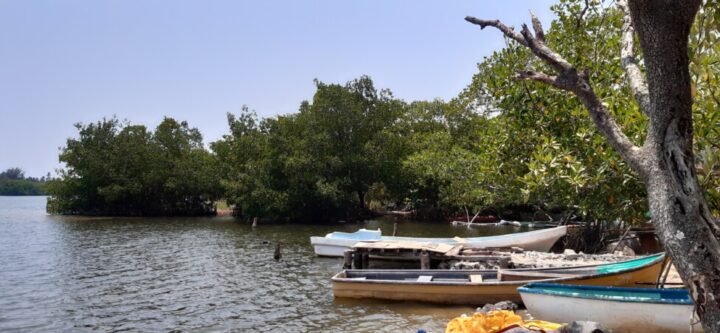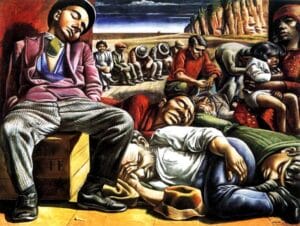
Civil Society, Climate Change, Economy & Trade, Energy, Global, Green Economy, Headlines, Human Rights, Inequality, Latin America & the Caribbean, Migration & Refugees, TerraViva United Nations
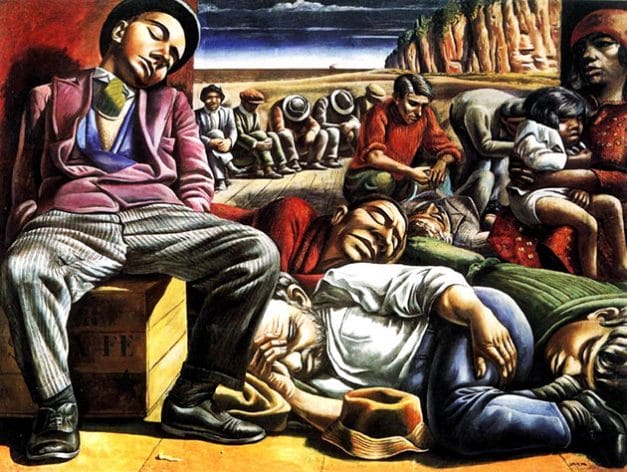
Antonio Berni, Unemployed, 1934
– Karl Marx’s Manifesto of the Communist Party begins with the now worn-out phrase: “A spectre is haunting Europe – the spectre of communism. All the powers of old Europe have entered into a holy alliance to exorcise this spectre”. Nowadays the word “communism” could easily be substituted by “migration”. All over Europe, politicians claim that Europe is being destroyed by migrants. In country after country, ghosts of yesterday are awakened. Parliaments include xenophobic politicians who might be considered as inheritors of demagogs who once dragged Europeans into hate and bloodbaths.
Populists have successfully convinced voters that the greatest threat to their nations is neither inequality, nor climate change, but immigration. Politicized storytellers have found that fear of “the other” can be a means to gain power. Nevertheless, such a fear does not concern any “other” – respected professionals who move to another country are usually not labelled as “migrants”, neither are wealthy businessmen who acquire new passports as easily as they move their money around the world.
To obtain some insights to the often all overshadowing phenomenon of international migration, Jan Lundius recently met with Dr Omar Hammoud Gallego, a fellow at the London School of Economics and Political Science.
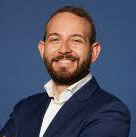
Omar Hammoud Gallego
IPS: Your research deals with migration, as well as civil society’s connection with international organisations. How did this interest develop?
Hammoud Gallego: Like many of my colleagues and friends, I am the son of migrants. My parents came from different parts of the world and met, married and established themselves in a third country. However, this was not the main reason for me to focus on migration in my research. In 2015, while working for UNHCR in Colombia, where I was engaged in supporting internally displaced Colombians, I soon found out that there was a lack of serious, in-depth research about migration within Latin America. I began to read about regional migration and decided eventually to pursue a PhD on this topic.
IPS: Was it the specific situation in Colombia that made you shift your main interest from internal to regional migration?
Hammoud Gallego: Yes, over the last few years Colombia has received a huge influx of migrants and refugees from Venezuela (although they are recognised as refugees only in a handful of countries). A phenomenon that has not abided. More than 7,7 million migrants and refugees have left Venezuela as a result of political turmoil, socio-economic instability and an ongoing humanitarian crisis, roughly a quarter of the country’s population. While democratic backsliding in the country began with Hugo Chávez, the situation worsened considerably during the presidency of his successor since 2013, Nicolás Maduro. Most refugees, more than 6,5 million, are hosted in Latin American and Caribbean countries; close to three million in Colombia, one and a half million in Peru, and close to half a million in both Chile and Ecuador.
IPS: And the cause of this exodus is mainly political?
Hammoud Gallego: To a certain degree – yes. The Venezuelan government inept and corrupt handling of the economy and plummeting oil prices caused the output of PDVSA (the national oil company) to decrease substantially, leading to lower revenues for the government. As it happens with many countries with vast oil reserves, Venezuela developed into a rentier state, receiving most of its income through the export of oil. Since 2013, the country’s economy has suffered greatly. In 2018, the inflation was more than 63,000 percent compared with the previous year, while nearly 90 percent of the population lives in poverty. Furthermore, estimates by the UN and Human Rights Watch indicate that under Maduro’s administration close to 20,000 people have been subject to alleged extrajudicial killings.
IPS: Is the current situation in Venezuela still excruciating?
Hammoud Gallego: Yes, and the current geopolitical landscape seems to have favoured Maduro’s regime rather than debilitated him. The country is Russia’s most important trading and military ally in South America. Due to the energy crisis linked to Russia’s criminal invasion of Ukraine, the US government in October last year lifted sanctions on the Venezuelan oil and mining sector, which had been in place since early 2019. In spite of this influx of money and support, the situation continues to be severe and so far, few Venezuelans are returning to their country of origin. Many are instead making their way to the Darien Gap, through Panama and from there continue north until they reach the United States. Elections in Venezuela are scheduled for this year, but it is hard to know if Maduro will allow them to take place fairly and transparently.
IPS: How is UNHCR handling the Venezuelan refugee crisis?
Hammoud Gallego: The UNHCR is one of the few UN agencies which depends almost entirely on voluntary contributions. Every year UNHCR funding shifts depending on the outcome of its Global Appeal, the process in which it asks governments and some private donors to contribute to the support of refugees. In 2023, about 74 percent of these funds came from 10 donors only, with much of the funding earmarked for specific crises and only 15% of it consisted of multi-year funds. Commitments are constantly shifting and crises around the world compete for limited resources. For example, when a refugee crisis erupted due to war in Ukraine it meant that less funding was dedicated to Latin American countries hosting Venezuelan refugees, as well as UNHCR commitments in other parts of the world. However, there are many NGOs across the region that also make a concrete difference in the lives of many refugees. For instance, the NGO VeneActiva, which was founded and is led by Venezuelan migrant women and operates in Peru, is one of the best examples in the Latin American region of how civil society can step in and provide the support refugees need. Its digital platform contains key information that helps Venezuelan nationals to restart their lives in Peru. The NGO provides a variety of services, including psychological support and advice on how to regularise one’s migratory status.
IPS: You are currently living in the UK, a country where migration, like in other European nations, is high up on the political agenda. Can you provide us with some insights about how the migration issue is dealt with in the UK?
Hammoud Gallego: Over the last few years, the Conservative government in the UK has been facing a dilemma of its own making. The Brexit decision was supposed to lead to a decrease in immigration, and instead the opposite seems now to have been the case. Still, the lack of enough immigrants to fill in positions in the public sector, particularly in education, and health, and to take on seasonal work in agriculture and construction, has limited economic growth in the country. The health sector was exceptionally hard hit by both Covid and Brexit.
IPS: How is the governing political party affected by the migration issue?
Hammoud Gallego: Since 2010 the UK has had a Conservative-led government, with Conservative party leaders making migration a prime electoral issue. However, according to the latest polling data, it is estimated that 46 percent of voters would vote for the Labour Party in a general election, compared with 22 percent voting for the Conservative Party. Understandably, conservative politicians are worried about losing votes to the far right, and specifically to the Reform Party, and are trying to out-do the far-right by adopting absurd measures to deter the arrival of asylum seekers. One such scheme is the recent Rwanda asylum plan.
IPS: Could you elaborate on whether the Rwanda plan is a feasible project, or not, and why some Conservative politicians actually proposed such a solution for asylum seekers.
Hammoud Gallego: It is a proposal that foresees that some of the asylum seekers who arrive to the UK irregularly will be relocated to Rwanda for processing. Those successful in claiming asylum would remain in Rwanda. It is an absurd proposal based on two wrong assumptions. The first, is that most asylum seekers will know about the scheme. The reality is that the information most of them get, comes from unofficial sources, oftentimes from the smugglers that organise their journeys. Second, even if they knew about the scheme, it is unlikely that it will deter them. For most of them, the choice of a country depends on several factors: the language they speak, the network they have, etc… Also, on their way to the UK asylum seekers have often taken several risks, and suffered greatly, so the minimal risk of being sent to Rwanda will be seen as an acceptable risk for most of them. The reality is that what this plan will only push individuals not to apply for asylum once in the UK, and in many cases simply live in the country with an irregular status, akin to the reality of many Mexican and Central Americans in the US.
IPS: How do you view the future for asylum seekers and so called “economic” migrants?
Hammoud Gallego: It looks bad. I believe that climate change will exacerbate conflicts in many regions of the world, thus forcing people to move. Such challenge needs urgently to be dealt with, both internationally and locally, and it might already be too late. Investments in green energy are far too limited, viable resettlement programs are not in place, leaving asylum seekers no option but to embark on dangerous journeys. Also, one of the main myths surrounding economic migration is that as countries become wealthier, people will have less incentives to leave. The reality is that the poorest individuals in the Global South have always been the ones least likely to travel, as they lack the means to do that. The poor cannot afford to move. As countries become wealthier, the middle classes will seek to travel and migrate more.
IPS: What can be done for migrants who are already in place in Europe, and elsewhere?
Hammoud Gallego: Well thought-through integration policies forcefully implemented and sensible migration policies would be a good place to start. There are many examples of how integration can be conducted successfully. Nations like the UK are to a certain degree proof of this, with a prime minister of Indian origin, and the Mayor of London and First Minister of Scotland both sons of Pakistani immigrants. Considering sudden refugee crises, the way European countries responded to the Ukrainian crisis shows the way forward: let refugees move wherever best suits them, and you will avoid a humanitarian catastrophe. However, politics in Europe seems to be going in the opposite direction. In Germany, Sweden, Hungary, Italy, the Netherlands and many other European nations anti-migration and nationalistic forces are gaining strength, not the least among young people who mistrust ageing and unrepresentative traditional parties. If everyone who voted in the election had been aged under 35, Geert Wilders’ Dutch Party for Freedom (PVV) might have won even more votes. In last year’s French presidential runoff, Marine le Pen won 39 percent of votes from people aged 18-24 and 49 percent of those aged 25-34, le Pen’s deputy is the 28 years old Jordan Bardella. Giorgia Meloni’s ruling Brothers of Italy was the preferred party among people under 35 years of age. I assume that the likely win of Donald Trump in the next US elections will boost European anti-migration politics.
IPS: What can immediately be done to address the issue of migrants and asylum seekers already in Europe, and maybe elsewhere as well?
Hammoud Gallego: If governments across Europe were to pursue sensible and evidence-based migration policies instead of replicating far-right talking points, it would be a start. Principled opposition politicians could, instead of focusing exclusively on migration to attract votes, focus more on those aspects of migration policies that might be improved, without resorting to a xenophobic rhetoric that normalises a polarising political discourse. Integration and inclusion are key for people coming to Europe. Integration is both a right and a duty, meaning that every member of a society has to adapt to and respect fundamental human rights, including democracy, the rule of law, freedom of speech and religion, as well as the rights to equality and non-discrimination.
Considering that migration has become a highly politicised issue it has been proposed that long-term immigrants ought to be given the right to vote, thus making their support more appealing to politicians and decision makers. A few countries, such as Chile and New Zealand, are allowing all residents to vote, hoping this would decrease polarisation and marginalisation, whether this will happen remains to be seen. Under all circumstances it would be desirable if we could live in a world where migrants were considered as fellow human beings, rather than as scapegoats for governments’ ineptitudes.
IPS UN Bureau



